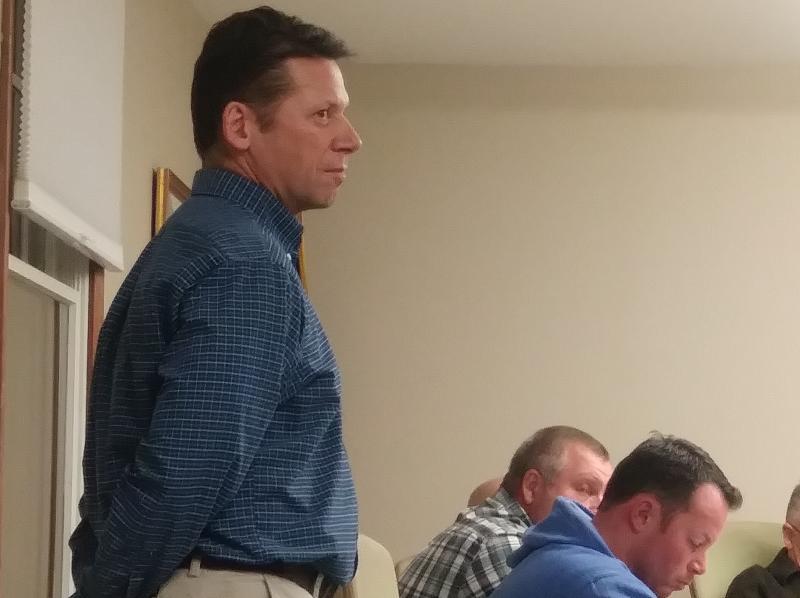Flooding, environmental issues concern solar project neighbors
A solar farm development on Mendell Road in Rochester is concerning abutters, who told the developer their fears about environmental effects and an area liable to flood at the Rochester Planning Board’s November 14 meeting.
Rochester residents and property abutters have previously stated strong concerns with plans to develop the property as a solar farm. Thirteen acres of the 67-acre property will be devoted to the solar field, according to the plans. Seven acres of trees will be clear cut to create the solar field (which will contain 9,000 solar panels), while some stone walls on the property will be removed. An 8-foot fence and berm will also be erected around the solar field, as required by Rochester’s solar zoning bylaws.
As Steve Long, a representative for Borrego Solar, was at the meeting, concerned abutters took time to quiz him on some of their concerns. One resident of Bowen’s Lane asked Long if a wildlife expert had ever come in to a solar project hearing to talk about how the loss of habitat would affect wildlife.
“We’ve never had a wildlife expert come in, no,” Planning Board chair Arnie Johnson told him.
Several other residents were also concerned about a low spot near the north end of the field on Mendell Road, which according to abutters is prone to flooding.
“Combined with the cutting of the trees, the rain we get is just going to bounce off the panels and land on the ground. That will saturate it and lead to more runoff,” said Dale Bindas, of 14 Mendell Road.
“We were concerned about that too, when solar projects first started coming into the area,” said Planning Board member John DeMaggio. “We thought that would be the case, that the water would just bounce off the panels. It turns out though—and we have proof—that the panels themselves won’t increase flooding. The water just bounces off and pools under the panel in front of it.”
The issue of flooding had previously led the town to request more detailed hydrogeology reports from Borrego, which would show where floodwaters would go in the result of a normal flood, as well as in the event of a drastic storm.
The hydrogeology report that Borrego turned in dealt with possible flood levels resulting from changing the lands. Johnson explained that Long needed to submit a flood mitigation system that would ensure that flooding would be no worse than it currently is.
The hydrogeology report has been submitted, but the board did not have time to review it before the meeting, which led to Borrego’s hearing being postponed to the board’s December 12 meeting.














